On September 28th, 2020, as part of the European framework on ethical aspect of artificial intelligence, robotics and related technologies, the European Parliament Research Service (EPRS) released a new European added value assessment (EAVA) on the European framework on ethical aspects of artificial intelligence, robotics and related technologies.
The European Parliament released a new study on the substantial benefits of AI for the internal market if a common EU approach on the ethical aspects of AI would be taken by Member States. The study is based on a “quantitative and qualitative assessment”.
“a common EU approach to ethical aspects of AI has the potential to generate up to €294.9 billion in additional GDP and 4.6 million additional jobs for the European Union by 2030.’’
In the study, the EPRS explained how a “joint EU action has the potential to generate benefits for the EU economy and individuals and enhance the global competitiveness of the EU as a global player’’, but regretted that “while numerous public and private actors around the world have produced guidelines in this area, there is currently no comprehensive legal framework’’.
To demonstrate how the EU would “take full advantage of being the first mover” of AI regulation and especially its ethical aspects, the EAVA details three policy options in order to make a comparative analysis of AI policy impacts:
- Policy option 0 (PO 0) – the status quo or baseline scenario
- Policy option 1 (PO 1) – ‘uniform’ common EU action entailing a high degree of harmonisation at EU level
- Policy option 2 (PO 2) – ‘coordinated’ EU action based on joint responsibility between EU and national levels
Beside these three policy options, the study explores four main legal aspects and frameworks that have to be examined:
- The European legal and policy framework for AI: through the study of EU primary law (Charter of Fundamental Rights of the EU) and secondary law (GDPR, Product Safety Liability, Digital single market-related legislation, EU initiatives);
- The emerging regulatory framework and policy context on ethical aspects of AI: Key gaps and challenges : the study focus on static regulatory framework as a risk when applied to dynamic AI system, the absence of a common understanding and definition of AI, the exponential growth of the AI market and the risk of delayed regulatory change. The study also explores the fragmentation of national actions as a risk to the EU global competitiveness and standard setting, the initiatives taken by the private sector and the SMEs’ interests at stake as well as the lack of binding norms;
- The possible EU policy responses to the current challenges: legal basis and principle of subsidiarity, necessity to act;
- European added value: studies based on quantity, qualitative assessment and comparison of policy options.
The EAVA also provides concrete examples of what is considered as a “relevant EU legislation” as well as concrete examples of policy impacts (policy options 1 and 2) based on selected macroeconomic variables by 2030. Through this interesting study, the EAVA aims to demonstrate and evaluate the added value that could be generated for the EU thanks to an EU approach of AI regulation.
“Building on EU economic and regulatory powers, common EU legislative action enormous potential to provide European industry with a competitive edge and boost the internal market. Furthermore, EU action would facilitate the adoption of EU standards globally and ensure that the development, uptake and diffusion of AI is based on the values, principles and rights protected in the EU. These benefits cannot be achieved by Member States acting alone.’’
Maéva EB.
Source: https://www.europarl.europa.eu/RegData/etudes/STUD/2020/654179/EPRS_STU(2020)654179_EN.pdf



